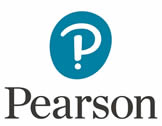
Il Business English è un ambito specifico e molto importante della lingua inglese: è quel linguaggio che viene utilizzato, a livello globale, nelle comunicazioni tra aziende ed in generale nel commercio e nel business, che include una ricca serie di termini, espressioni e abbreviazioni peculiari che sono molto utilizzate, appunto, nel mondo del lavoro.
In questo articolo troverai:
Soprattutto negli ultimi anni, conoscere il Business English è un requisito essenziale per operare in aziende multinazionali o in contesti internazionali: per questo, se non possiedi una conoscenza approfondita dell’inglese, o anche se ne hai una conoscenza prettamente scolastica, può essere utile seguire un corso di formazione specifico, facendo riferimento ad un ente accreditato (sostenendo eventualmente anche un esame che ti fornisce una certificazione apposita).
La formazione nel Business English è un titolo che rappresenta un importante valore aggiunto a livello di Curriculum Vitae. Se vuoi approfondire la tua conoscenza dell'inglese lavorativo, ti consigliamo la nostra Guida completa al Business english.
Di seguito ti proponiamo degli esempi di conversazione in Business English, da cui potrai trarre importanti spunti: fai attenzione ai toni utilizzati, alle espressioni idiomatiche, alle abbreviazioni.
Vuoi testare il livello del tuo Business English? Fai il nostro test online:
Business English: la telefonata di lavoro in inglese
Le telefonate di lavoro sono una parte importante della vita in ufficio.
Abbiamo approfondito questo argomento in questo articolo: "Rispondere al telefono in inglese: frasi, formule e consigli".
Esiste un linguaggio specifico, denominato english for telephoning, che racchiude tutte le formule e le espressioni idiomatiche da utilizzare quando si parla al telefono.
Nella conversazione che segue puoi scoprirne alcune.
Hello, John Smith speaking.
Hello, this is Frank White from Best Company. I'd like to speak with Andrew Ross, please.
Do you mind waiting a moment? The line's busy. (after some seconds). I'm afraid he's out of the office at the moment.
When will he be available?
I think he will come back in about two hours. He has an important meeting in the afternoon.
Could you ask him to call me back, please?
Yes, sure. Would you like to leave a message in the meanwhile, to outline the call subject?
Yes. We are reviewing your data about your contract with our company but some of them are missing.
I'll tell him as soon as he returns. Could you give me your name and number?
Sure. John Smith, 12 - 345678
Got it. Mr. Ross will call you in a while. Thanks for your call.
Thanks for your help. Goodbye!
Business English: la presentazione in inglese
La situazione che ti presentiamo non riguarda una conversazione in senso stretto, bensì una presentazione svolta in un’azienda. Anche in questo contesto puoi imparare le formule per introdurre il discorso ed alcune espressioni idiomatiche proprie del Business English.
Frank: Welcome everyone, please remain seated. I am Frank White, Senior manager at Best Company. These are my colleagues John Smith and Anne Ross.
We are here today to to discuss how we can improve internal communications within our company. Please feel free to ask questions at any point during our presentation, but I’m also sure there’ll be plenty of time for us to discuss some of the points that have been raised.
In particular, let me begin by explaining that I’d like to talk about the business case for better communication; secondly, I want to cover different styles and methods; and finally I would like to finish off by talking about some of the basics we need to have in place to deliver good quality, consistent communications across the company. Now Anne will provide you some background information.
Anne: Thank you Frank, good morning everyone. A good example of how important internal communications are is shown by some findings from research that we have recently undertaken. Good communications is a very key factor in staff motivation. If you look at this slide, you will see how important it is to get the basics in place. You need to identify your communication requirement, agree your objectives and success criteria, identify your target audiences, define the content of your message and determine the style of delivery. A good illustration of the communication process is when all those basics fall into place naturally.
Tom: Excuse me, can I ask you a question?
Anne: Yes, sure.
Tom: Yes, can I just ask, graph number 3, that last one you showed us, can you explain to me where you’re intending to find the funds to improve internal communication?
Anne: Yes, a very good question. I’ve prepared this slide to explain where we can find financial resources for this project.
Frank: Now, let’s move on to discuss ideas with a little bit of blue sky thinking. Feel free to tell us any kind of suggestion and proposal
[…]
Frank: Unfortunately, I seem to have run out of time, so I’ll conclude very briefly by saying that you all have shared interesting ideas. We’ll discuss them further with the management team and we’ll outline concrete projects. Thank you so much for your attention. See you soon, have a great day.
Vuoi migliorare il tuo Business English? Scarica subito il nostro e-book gratuito sul Business Vocabulary e scopri come scegliere il corso più adatto a te!






